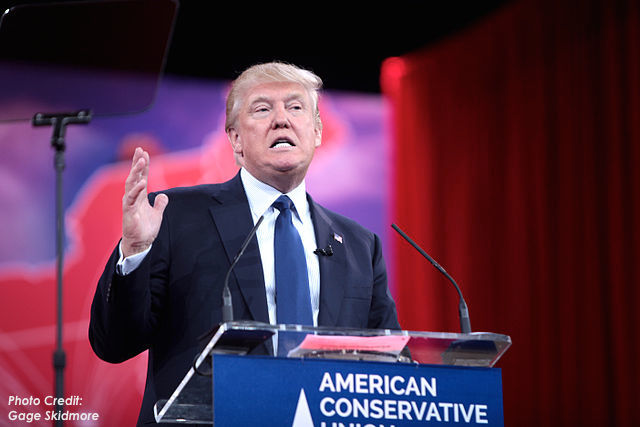
The Washington Post earlier this month described Trump’s business bankruptcies:
The 69-year-old real estate tycoon has never filed for personal bankruptcy and has for years portrayed the Chapter 11 bankruptcies of his glittering hotels and casinos as calculated, even shrewd maneuvers, and facts of life in the high-stakes worlds of mega-development and commercial finance.
The Trump-tied bankruptcies have all been filed under Chapter 11, a provision allowing troubled companies to stay in business while restructuring their business model or reducing their debts. In the business world, those filings are far more common, and far less disastrous, than Chapter 7 bankruptcies, in which companies are liquidated to satisfy debts.
[…]
An estimated 5 percent of the 500 biggest U.S. companies have filed for bankruptcy in the past two decades, Georgetown law professor Adam Levitin said.
While I am not defending Donald Trump’s view of his activities, I do have to ask: Are Trump’s business bankruptcies really worse than other corporate legal manipulations?
True, Chapter 11 bankruptcy is uncommon by comparison to other maneuvers through American business and tax law, but is it worse? Major U.S. companies use and abuse legal provisions constantly to evade and avoid taxes to the government. Trump used the law to avoid creditors — at major investment banks and funds, so let’s not weep too hard (and most of them came out the other side of his restructurings with lucrative deals).
Some US companies do complicated maneuvers like “offshore reincorporation” and other tax-avoidance mergers. He used Chapter 11 for cashflow management purposes. If companies use the US legal code to boost their profits and cashflow via tax avoidance, how is that better than Chapter 11 bankruptcy?
Trump made business deals on the (correct) assumption that he could fall back on restructuring laws. Other firms make deals based on assumptions that they can fall back on tax loopholes.
Perhaps you are both unswayed by moral arguments and unpersuaded by his argument that he was using the system to his advantage like everyone else. Perhaps you would prefer to judge his record solely on what these bankruptcies says about his ability to run businesses.
Well, what about comparing it to popular and trendy legal maneuvers that are questionable long-term business practices? Many companies have been borrowing heavily to shower money on their shareholders, instead of using it to invest in expansion:
This practice of borrowing to pay shareholders instead of borrowing to invest, as you might guess, basically means shareholders are profiting against the company’s future financial health, rather than from current (or future) returns on its previous (or current) investments. That means literally raiding the companies’ future earnings to generate payout cash now. The company will eventually have to pay back the borrowed money with interest, but it will not have gained anything from that borrowing because it was used to rain money down on shareholders instead of actually growing the company’s operations. This means companies are putting themselves deeper into a long-term hole, even as wealthy shareholders […] rake in money in the short-term.
[…]
Down the line, a lot of American companies could have very high debt burdens while also being very underdeveloped compared to foreign competitors who invested in keeping up with the times and growing their long-term potential earnings. That will make them vulnerable to bankruptcy and other problems.
Maybe it’s true that Trump flew closer to the sun (and did so sooner) than these other future Icaruses, but the effect will eventually be the same.
Once again, one finds that Trump is not the epitome of evil. He is merely reflecting back a refined and purified vision of what America has become in its re-expanding dark corners. Those corners of our society exercise financial and political power in a dangerous direction. He didn’t make it that way. This is our country. We allowed this to happen.




